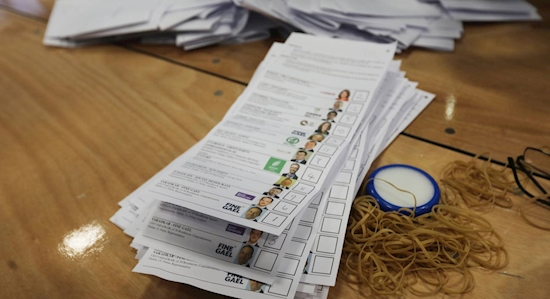Paul Hosford: Will the Greens boldly go into government?
By now, the vast majority of Green Party members' votes are on their way to Dublin faster than a Marvel superhero.
There, the votes will be counted and, if 66% or more have an X in the Yes box, we will have a government formed, with a brand-new Taoiseach on Saturday.In which case, some in the Green Party fear that they will spend four or five years in government with two parties that have cohorts of members who treat them with vague bewilderment at best and outright hatred at worst.
What will follow, these people warn, is an electoral wipeout in the next election.
On the other hand, the Greens could reject the deal, and what Taoiseach Leo Varadkar calls a "political crisis" will be kicked off.
While there is every chance that President Michael D Higgins could refuse to dissolve the Dáil, a failure by Sinn Féin and Fianna Fáil to coalesce would leave him little other option at the end of the summer.
In that case, some in the Green Party fear they will be "blamed" for the collapse of a potential government and their 12 TDs would be punished in varying ways in the second election of 2022, potentially leading to an electoral wipeout.Few in the party see either scenario ending well.
The sense is that they have entered an electoral Kobayashi Maru — the Star Trek simulation in which there is no victory, just a choice about when and how to perish.However, this whole conversation hinges on the idea that some of those Greens only care about Dáil seats and fear a shellacking at the polls. To be clear — they do not.
But the Green Party members who are against the deal are not children having a tantrum.
They do not need to be condescended to or placated, to be told how to vote by commentators who just want a government formed so that the normal rhythms of political life return.
They genuinely believe that the Programme for Government is not a good document for delivering their political priorities and some believe it would be preferable to lose seats now than sit for five years with Fianna Fáil and Fine Gael under the auspices of this particular document and lose seats then.
In the cold, cynical light of electoral politics as sport, this attitude appears callow and antithetical to Irish people's inherent wariness of idealists, drawing a distinction between idealism and pragmatism. But we are also a country which has time and again lamented cynical politics done purely for electoral gain.We are and should be wary of politicians who arrive at our doors interested in little more than controlling the levers of power.
The argument will go that this Green Party needs to look to the future and be wary of the impending climate disaster, to use its voice inside the tent to push for more aggressive targets and concrete action.
But those against the deal point to Tánaiste Simon Coveney's comments that the heavy lifting of the emissions cuts will be done in the second half of this decade — when the Greens would likely not be in government.
The Green Party under Eamon Ryan has made a huge leap forward in the nine years since its last electoral wipeout, putting green politics front and centre of Irish life and returning a record 12 TDs.
Some in the party don't know if they can come back from another pummelling and think it would be better to hold their noses and achieve something with that record-breaking mandate and will point to the recovery of the party as proof that it has the political minds to avoid the no-lose scenario.After 5pm on Friday and beyond we will know if, like Captain Kirk, they can reprogram the no-win scenario.
Source: www.irishexaminer.com

